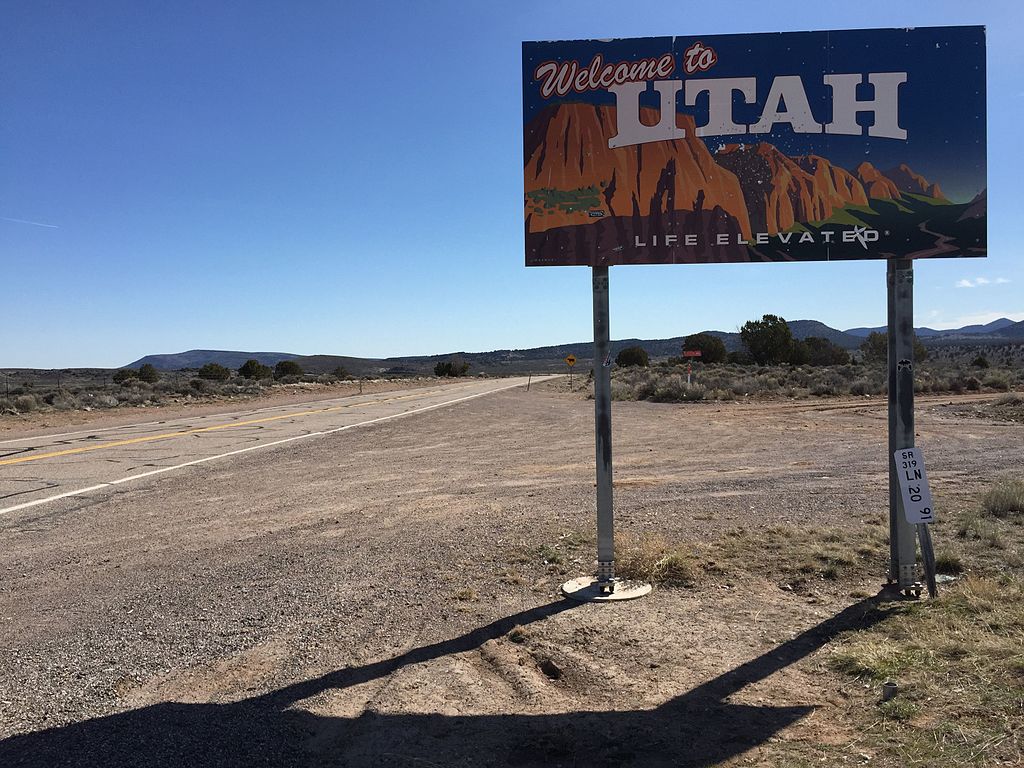Judge Dianna Gibson of the Utah Third District Court ruled on Aug. 25 that the state's congressional districts map, adopted in 2021, violated the state constitution. Gibson ordered that a non-politician redistricting commission, in accordance with the requirements of Proposition 4, draft new maps. The ruling followed legislative changes to Proposition 4 in 2020, and an earlier ruling on July 11, 2024, that found those changes could have violated the constitution.
In 2018, voters approved Proposition 4 by a margin of 50.3% to 49.7%. The ballot measure, an initiated state statute supported by Better Boundaries, created a non-politician redistricting commission. The commission would be responsible for determining the district boundaries for congressional and state legislative district maps, and then presenting those maps to the legislature for their approval or rejection. The commission would be composed of seven members, each appointed by different political parties, elected officials, and groups of officeholders. An explanation of the commission’s structure can be found here.
In March 2020, the state legislature passed Senate Bill 200 (SB 200), which altered the state statute enacted by Proposition 4. SB 200 created a legislative redistricting committee that would work separately from the non-politician redistricting commission established by Proposition 4. Both the committee and the commission could propose maps. SB 200 also repealed provisions that barred the commission and legislators from using partisan political data, such as partisan election results and voting records, when drafting maps, and from drawing districts that purposefully or unduly favored or disfavored any incumbent, candidate, or political party. The state Senate passed SB 200 by a vote of 25-0, and the state House passed SB 200 by a vote of 67-4.
In 2021, the legislative committee created, and Gov. Spencer Cox (R) approved, new electoral maps that were used for the 2022 election cycle. In March 2022, the Utah League of Women Voters and Mormon Women for Ethical Government sued the Utah State Legislature, alleging that the legislature had violated the state constitution by repealing and replacing the voter-approved Proposition 4. The groups also said that the 2021 congressional map was an unconstitutional partisan gerrymander.
On July 11, 2024, the Utah Supreme Court ruled that the legislative override of Proposition 4 could have violated voters' constitutional right to participate in government. The ruling stated that, "when Utahns exercise their right to reform the government through a citizen initiative, their exercise of these rights is protected from government infringement. This means that government-reform initiatives are constitutionally protected from unfettered legislative amendment, repeal, or replacement. Although the Legislature has authority to amend or repeal statutes, it is well settled that legislative action cannot unduly infringe or restrain the exercise of constitutional rights. Consequently, when Utahns exercise their right to reform the government through an initiative, this limits the Legislature’s authority to amend or repeal the initiative." The Court then returned the case to Utah’s Third District Court to consider in light of this finding.
On Aug. 25, 2025, Judge Gibson of the Utah Third Judicial District Court ruled that SB 200 was unconstitutional. She held "that the Legislature unconstitutionally repealed Proposition 4, and enacted SB 200, in violation of the people’s fundamental right to reform redistricting in Utah and to prohibit partisan gerrymandering." Therefore, the 2021 congressional electoral maps were also unconstitutional.
The Democratic National Committee Chair Ken Martin issued a statement following the ruling. He said, “The DNC applauds the Third District Court in Utah for striking down Utah's blatant, gerrymandered maps. Utahns deserve representation that reflects the demographic and ideological makeup of the state. Utah Republicans gerrymandered the maps because they knew they were losing power in the state, and they attempted to stop Democratic gains in the state.”
Senate President J. Stuart Adams (R-7) and House Speaker Mike Schultz (R-12) made a joint statement following the ruling. They said, “We remain committed to protecting the voices of Utahns and upholding the Legislature’s state and federal constitutional authority to draw congressional districts. We will carefully review the ruling and consider our next steps.”
On Aug. 27, President Donald Trump (R) published the following statement on the social media website Truth Social, “How did such a wonderful Republican State like Utah, which I won in every Election, end up with so many Radical Left Judges? All Citizens of Utah should be outraged at their activist Judiciary, which wants to take away our Congressional advantage, and will do everything possible to do so."
Judge Gibson’s ruling only applies to the federal congressional district map for Utah, not the state legislative districts or school board districts, as that was the only map challenged in the lawsuit. The ruling gave the legislature a 30-day deadline to adopt a new map that complies with the requirements of Proposition 4. The legislature may appeal the ruling.



